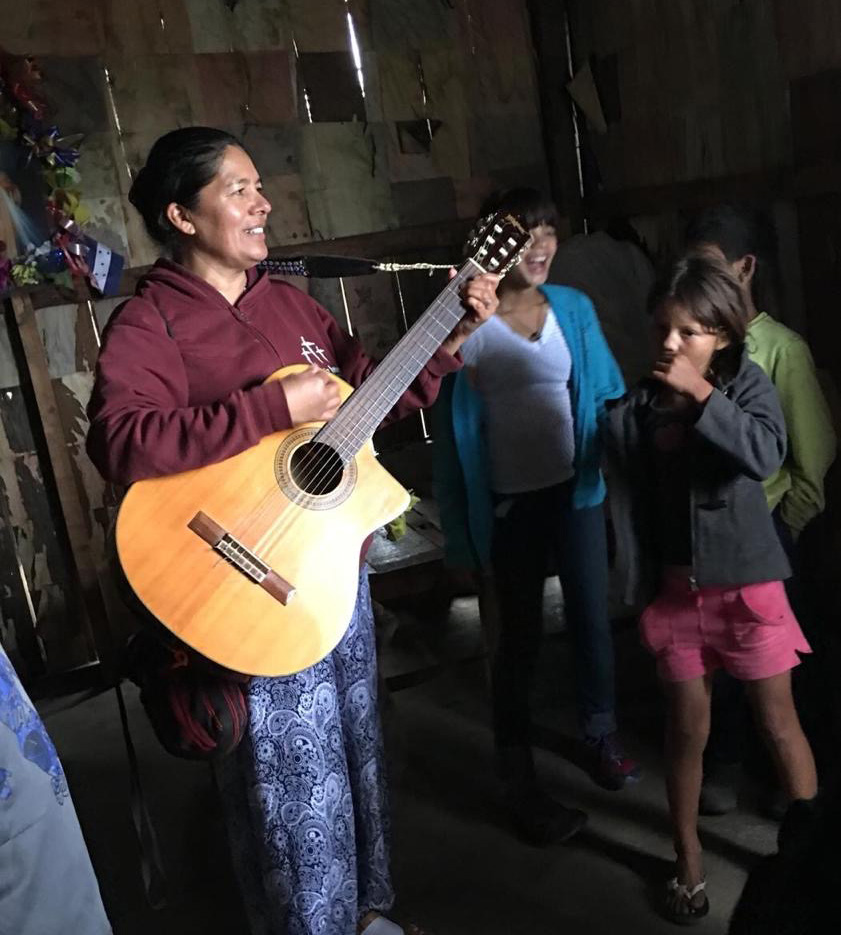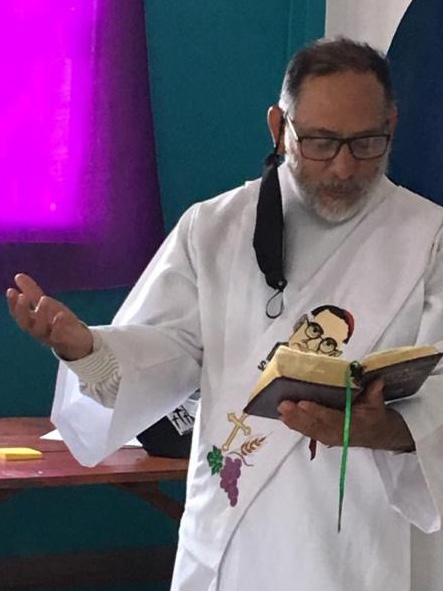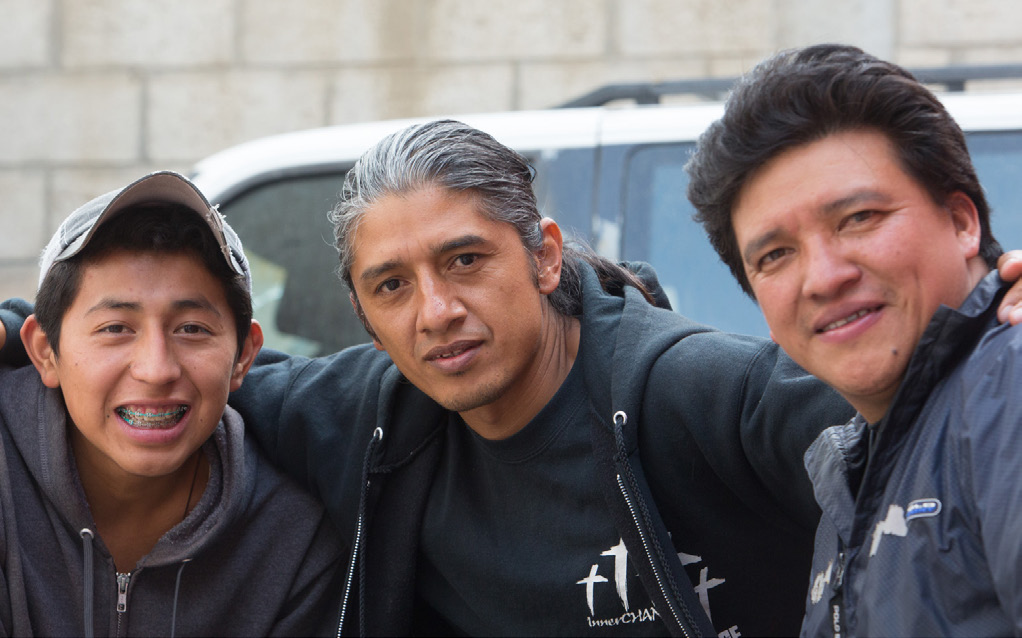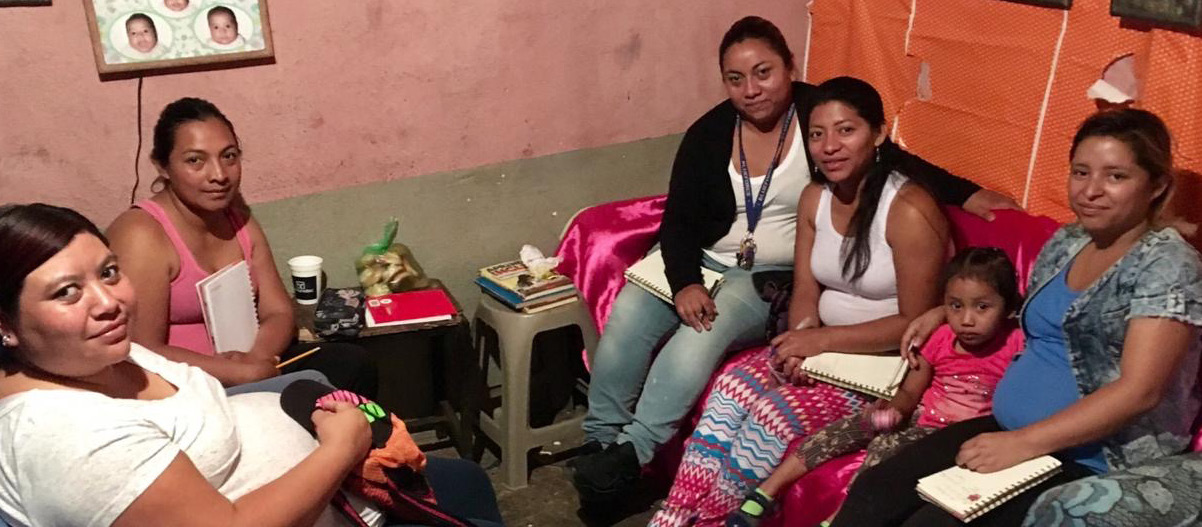
CHAPTER 1: Why the Exodus Story? Part Two
In every formation lesson we will be seeking to accompany the Spirit as he moves in our complex contexts. For that reason, we will stay very close to Biblical text, especially the Gospel of Luke and the Book of Acts. However, we will also be following the lessons of the Exodus story, which is the longest and most detailed story told in the Bible. But first we should ask, “Why Exodus? Why stay close to a journey that is so pain-filled with disobedience and failure?” For one thing, pioneers need practical examples of historical reality, not just hopeful plans of theoretical possibility. But there are many reasons why the Exodus story will be a powerful mentor for our apostolic efforts. Here are a few:
- Moses is the first biblical missionary among the poor.
- The Exodus story is an apostolic journey that starts in the margins.
- Nobody’s perfect in this journey of failure and forgiveness. We can all relate to the characters.
- It is a journey of patience and slow progress that develops character and identity.
- It is an expression of the Upside-Down Kingdom of God in which Empire is brought low and the poor are raised up.
- It is an imperfect liberation story that makes us yearn for the perfect liberation of Christ.
- It is a “we story” not a “me story” of real relationships. It is a collective account of a people becoming light to others, not a story of an individual “superstar.”
- It is an “inside-out” story of creative hope using assets from the community, not a needs-based program of charity from the outside.
Questions for Discussion:
- What are some other reasons that the Exodus story can be a powerful mentor for us, especially in the context you are committed to?
- Have you ever considered the Exodus story as a practical guide for ministering in transforming ways in a community?
Looking Closer
Let’s expand on several of these reasons, above, that a story, thousands of years old, can live on today as an iron-sharpening-iron experience for pioneering teams.
Moses as the First Incarnational Missionary
Moses is simply the first classic missionary in the Bible. But we can also encourage ourselves in InnerCHANGE that he is the first missionary among people in poverty. His leadership example is especially valuable to us because God used him to direct a journey of liberation for people who were more than poor. The Hebrews were oppressed and enslaved and had been so for hundreds of years. In the same way, we are called to be agents of good news in communities where people not only lack essential resources but also have been systemically beaten down, often for generations. It is also comforting to remember that Moses was eighty years old when God called him to ministry. We can reassure ourselves that if God could use Moses with his past failures and advanced age, he can use us. Furthermore, the fact that Moses failed miserably to be a change agent at age forty also reminds us that God doesn’t give up on people. God used Moses to lead a huge crowd of people across wilderness landscapes for forty years. Certainly, his story has something to teach us.

Starts in the Margins
Jesus announced the beginning of his ministry by quoting the prophet Isaiah: “The Spirit of the Lord is upon me, because he has anointed me to proclaim good news to the poor. He has sent me to proclaim liberty to the captives and recovering of sight to the blind, to set at liberty those who are oppressed, to proclaim the year of the Lord’s favor.” (Luke 4:18-19)
Jesus came to seek and save the lost, but he did not begin in the middle of society. He began in the margins, often with people of the most urgent need. In the same way, God’s first liberation story told in Exodus, likewise, started in the margins. The world’s voice tells us that the highest forms of creativity start with well-educated people with unlimited time and resources at their disposal. Not so with God. This is important for us to realize. When God is at his apostolic and creative best fashioning a people for himself, first with the Israelites and second with the church, he starts in the margins. Over the years, we have seen much aid work and mission work target the poor to help them “catch up” with the mainstream. There is no question that meeting needs and helping to close gaps between poor and rich is extremely urgent in our world. But in the process of working with people in need, we cannot lose sight of the dynamic creativity of their own assets in God’s hands. 4 Those assets may look like no more than a few fish and loaves of bread in the world’s eyes, but blessed by Jesus, those resources can fortify a multitude (Luke 9:10-17).
Nobody’s Perfect
The Exodus story is very messy and very human. It is an honest chronicle of a costly journey of loss and gain, failure and forgiveness. Reading the Exodus story can sometimes be discouraging. But sometimes failure can be a better teacher than success and can open us up to God’s deeper purposes. Years after inventing the lightbulb, Thomas Edison had this to say about the long process of trial and error: “I didn’t fail a thousand times; the lightbulb was an invention with a thousand steps.” Also, where there is great failure, there is potential for even greater forgiveness with God. Learning from the Exodus story helps us retain our humility and dependence on God for every step of the journey and sustain ourselves for the long term. It also reminds us to be patient with one another.
Character-building Patience and Identity
There is a saying many of us hold dear in InnerCHANGE: “It is good to have an end to journey toward, but it is the journey that matters in the end.” When the Hebrews first marched out of Egypt, it is doubtful that they expected to be on foot for forty years. Transformational journeys typically take time. Incarnational ministry in the margins can be a slow process.
 Imagine how weary the Israelites must have become constantly packing and unpacking their few belongings, over and over, year after year. In the same way, there will be monotony for us, perhaps especially so if you are a Relocator and need to invest much time in learning language and culture. Language learning is about incremental steps and lots of repetition. But whether you are a Remainer, Returner, or Relocator, the ministry process of prayerfully planting seeds, cultivating new believers, raising leaders, and prophetically envisioning change and working for justice is a careful and considered one that must be a “long obedience in the same direction” (as Eugene Peterson describes so well). Having said that, though, the journey is exciting and rewarding. We are privileged to watch the Spirit breathe life into people, hope and capacity into communities, and change into societies.
Imagine how weary the Israelites must have become constantly packing and unpacking their few belongings, over and over, year after year. In the same way, there will be monotony for us, perhaps especially so if you are a Relocator and need to invest much time in learning language and culture. Language learning is about incremental steps and lots of repetition. But whether you are a Remainer, Returner, or Relocator, the ministry process of prayerfully planting seeds, cultivating new believers, raising leaders, and prophetically envisioning change and working for justice is a careful and considered one that must be a “long obedience in the same direction” (as Eugene Peterson describes so well). Having said that, though, the journey is exciting and rewarding. We are privileged to watch the Spirit breathe life into people, hope and capacity into communities, and change into societies.
God uses the routine and discipline of journeys to build people up in character and identity. The Exodus story is one example. The three-year journey Jesus makes with his disciples is another. The ministry journey ahead is not just a bridge to cross to a “promised land” of accomplishments and results. Don’t misunderstand, it is important to journey with the end in mind.
 But God uses the process of journey to imprint his people with the identity of being “sojourners,” people in the world but not of it, “who are seeking a better country, a heavenly one” (Hebrews 11:13-16). For these reasons and more, we describe ourselves as a “journey people” in InnerCHANGE. The Exodus journey was long and difficult. A second important aspect is that it was travelled mostly through the wide-open space of a desert landscape. As a pioneering mission worker, your day will often be wide open, especially in the beginning. You won’t have the obvious structure and accountability of going to a workplace and putting in hours from 9 to 5. For natural self-starters this freedom is often welcomed as an invitation to creativity. But for others who are accustomed to a highly structured work environment, this freedom can be challenging and confusing. Knowing yourself and being honest with your ability to pioneer in “open space” is very important. Whether you are a natural self-starter or are willing to develop this quality as an acquired skill, pioneering means becoming comfortable to work with a lot of freedom in consultation with Horizons mentors.
But God uses the process of journey to imprint his people with the identity of being “sojourners,” people in the world but not of it, “who are seeking a better country, a heavenly one” (Hebrews 11:13-16). For these reasons and more, we describe ourselves as a “journey people” in InnerCHANGE. The Exodus journey was long and difficult. A second important aspect is that it was travelled mostly through the wide-open space of a desert landscape. As a pioneering mission worker, your day will often be wide open, especially in the beginning. You won’t have the obvious structure and accountability of going to a workplace and putting in hours from 9 to 5. For natural self-starters this freedom is often welcomed as an invitation to creativity. But for others who are accustomed to a highly structured work environment, this freedom can be challenging and confusing. Knowing yourself and being honest with your ability to pioneer in “open space” is very important. Whether you are a natural self-starter or are willing to develop this quality as an acquired skill, pioneering means becoming comfortable to work with a lot of freedom in consultation with Horizons mentors.
The Good News of Christ
Judges 2:10 describes sorrowfully the outcome of the Exodus story. By the time of the third generation, scripture tells us: “And there arose another generation after them who did not know the Lord or the work that he had done for Israel.” How do the grandchildren of freed slaves forget the Lord and the incredible miracles he did in taking them to the Land of Promise? How do they lose so quickly what it meant to be a chosen people that would be a light to all nations for all generations?
But the failure was not simply the fault of the third generation. Each generation struggled to follow God’s purposes fully. The first generation that experienced the mighty deliverance from slavery and got to go out of the land of Egypt didn’t get to go into the Promised Land.  Then the next generation under Joshua that did get to go into the land were unable to pass on the liberating legacy of God’s faithfulness to their children. Reflecting on the broken dreams and promises of the Exodus story helps us better fix our eyes on Jesus and appreciate the urgency and fullness of his perfect journey. In fact, the Exodus story cannot be completely understood without the gospel narratives, including Jesus’ forty-day fast in the desert and his resistance against the temptation of the enemy. Jesus did not simply proclaim good news, his perfect life journey was good news.
Then the next generation under Joshua that did get to go into the land were unable to pass on the liberating legacy of God’s faithfulness to their children. Reflecting on the broken dreams and promises of the Exodus story helps us better fix our eyes on Jesus and appreciate the urgency and fullness of his perfect journey. In fact, the Exodus story cannot be completely understood without the gospel narratives, including Jesus’ forty-day fast in the desert and his resistance against the temptation of the enemy. Jesus did not simply proclaim good news, his perfect life journey was good news.
Hebrews 12: 1-2 exhorts us: Therefore, since we are surrounded by so great a cloud of witnesses, let us lay aside every weight, and sin, which clings so closely, and let us run with endurance the race that is set before us, looking to Jesus, the founder and perfector of our faith, who for the joy that was set before him, endured the cross, despising the shame, and is seated at the right hand of the throne of God.”
Relationships are the Heart of Ministry
“Do not think that love in order to be genuine has to be extraordinary. What we need is to love without getting tired.” -Mother Teresa
 We will face hardship, loss, sometimes multiple crises at one time, and our intimacy with God and one another must be able to endure that. Jesus told us with all authority that the commandments could be summed up in loving God and loving neighbors as ourselves. Period end. Life at its core is about relationships—with God and with one another.
We will face hardship, loss, sometimes multiple crises at one time, and our intimacy with God and one another must be able to endure that. Jesus told us with all authority that the commandments could be summed up in loving God and loving neighbors as ourselves. Period end. Life at its core is about relationships—with God and with one another.

As Nate Bacon often quotes powerfully, “God calls us to the abandoned places of Empire, to the apparent wastelands where the precious image of God has been disfigured by the diseased principalities of racism, greed, exclusion, and a throwaway culture that grinds the face of the poor into the ground.” Living in the margins is not easy. All the more reason to continually keep in our hearts and minds that Jesus is specially present with the “least of these” described in Matthew 25. Where Jesus is powerfully present, grace abounds. As our friends in the Center for Transforming Mission describe so beautifully, “Grace is like water. It flows down and pools up in the low places.”
This journey will require the best of you but will sometimes bring out the worst. Living and ministering in poor communities tightly packed with people living on the edge means the relational demands are high. And yet, we must persevere in making people first, programs and strategy second.
Because the relational demands living in context can be huge, ministering among people in need is best done with others. From the beginning, we have said in InnerCHANGE that it takes a community to reach a community. Building a team that includes other members, volunteers, and partners not only helps share the load, but also allows the Spirit of God to more fully express what it means to be the Body of Christ. The Lord always looks to extend the Kingdom and build his church through his interdependent body.
Apostolic people have the ability to “tunnel into” a context in the early, often vulnerable years of cultivating pioneering mission. “Dropping like a grain of wheat into the ground” in order to bear fruit means we must prioritize the “soil” we are called to. Thus, broader friendships beyond the context must be secondary. However, secondary doesn’t not mean not at all.
More than three decades of rigorous ministry in margins around the world has shown us that it is helpful to value belonging to part of a larger tribe—a global one, if possible, as InnerCHANGE is. Ministering as a member of a mission order that is part team, part tribe, part family helps us cross-learn but also helps us sustain our inspiration for the long haul. Consequently, investing in relationships across the wider body of InnerCHANGE can be life-giving. It is especially important to cultivate deep relationships with both Horizons mentors as well as peers who are pioneering new teams in other contexts. For those of us who have ministered in InnerCHANGE more than thirty years, we have experienced what it means to be family to one another, and uncles and aunts to one another’s children.
Closing Thoughts
“O Lord, pass by, Till the people pass by whom you have purchased.” (Exodus 15:16)
At the end of his life, God invited Moses to climb Mount Nebo to meet him and gaze out upon the Promised Land. It was a signature moment between the closest of companions.
God used Moses’ patient and persevering leadership to take the people to the threshold of the Promised Land. He was not permitted to cross over. But he had the tremendous comfort of knowing God would continue to lead the Israelites under the capable leadership of Joshua, a leader Moses faithfully raised up. Moses was privileged to spend his last hours in a unique form of intimacy with God that no person has experienced since. Furthermore, God preserved that intimacy by burying Moses personally, in a location only he knew. Consequently, it was written: “And there has not arisen a prophet since in Israel like Moses, whom the Lord knew face to face” (Deuteronomy 34:10).
As with Moses, there will be visions of promised lands we may not see fulfilled in pioneering ministry. But equally, we may find that our faithfulness in the journey produces fruit we never dreamed of. Moses was 120 years old when God showed him that his mission was completed. He was much transformed from the reluctant missionary who tried to talk God out of using him forty years earlier at the burning bush.
At the end of his life, Moses must have realized that it was not only the people that needed the long journey out of Egypt. He needed it. So will we.
God used the journey to make Moses a better, more whole person with a deeper spiritual walk than he started with. If we let him, he will do the same with us.
Like Moses, we will not come to the missionary venture whole. We will find ourselves on a journey of mutual liberation and transformation with the people God calls us to.
Moses and the people were forty years on the road. The journey took longer and became much bigger than they initially imagined when they first packed up to leave Egypt. Likewise, nearly forty years after I started ministry in 1982, I have found that lasting change is costly, often takes time, and is made step by step “at a walking pace.” God goes on journey with us to help us encounter and overcome trials such that our dependency deepens, our character sharpens, and we experience intensified purpose and meaning.
South Central, Los Angeles, November 1982
On my first night in South Central, Los Angeles, in the home of an African American family, I was awakened dramatically in the middle of the night. It was November 1982, and I had been hired as the STEP Foundation’s director for inner city Los Angeles. At the time, South Central was one of the most well-known inner city communities in the US and its image was typically portrayed negatively in the media. I was skeptical of the media perspective and very much wanted to experience the community personally and draw my own conclusions. I had no car, no bank account, and not much money. But for some reason, I experienced the feeling of “traveling light” as liberating. Furthermore, having no car in the first few weeks encouraged me to walk the fifteen blocks to the offices of Mt. Zion Missionary Baptist Church on Main Street. That seemed a natural way to explore and learn and I was excited about that.
I knew I had not been well-trained in Dallas (the headquarters of STEP) to do ministry in LA, let alone direct ministry activity. I don’t know why that didn’t concern me more and I don’t know how to explain the enthusiasm I had in those early days. I was excited about learning and I was looking forward to being part of something that mattered in God’s eyes. Also, I had a place to live, in the heart of the community, and instinctively, I felt good about living incarnationally, even though I was unaware of that term in those days.

On that first night, I was awakened at about 3 a.m. by the roar of a police helicopter overhead. The “whup-whup-whup” sound of the rotating blades shook the house and it felt like the helicopter had landed on the roof. Suddenly, the bedroom was flooded with brilliant light as the searchlight of the police helicopter zeroed in on the alley outside my window. The helicopter banked in a tight circle, over and over, but the light-beam stayed focused on the small circle of ground outside my window.
Looking back, I am surprised at how calm I was and how quickly I fell back to sleep.
Clearly, the police were searching for someone very close by. Perhaps I assumed that helicopters overhead were a normal part of living and ministering in the inner city. Perhaps, also, so many more important events followed soon after that I didn’t give that spotlight outside my window a second thought. But I think the main reason I didn’t reflect more on waking up to the light is that I was so focused on what was to come, and what I was expected to do. I believed ministry was about doing, not about being, and I had no mentor at that time to encourage action/reflection.
In my concentration on my own actions, I missed seeing a lot of things that would have given me greater perspective in ministry and insight into myself. Consequently, I made a lot of mistakes.
Nearly forty years later, I wonder if more was going on with that spotlight outside my window than a “random” introduction to the inner city. I wonder if God was using that searchlight to show me that he could find me anywhere and that his eye would always be upon me. Was that bright light a reminder that though “now we see through a glass dimly, one day, face to face?” Was it a confirmation that, ultimately, we will be seen in a light so bright and experience a love so full that we will no longer know in part, but “shall know fully, even as we are fully known?” (I Corinthians 13:12).
I count myself fortunate that my journey in ministry has been so long, life-transforming, and rich in relationships. With the perspective of nearly four decades I am more fully aware that “it is the journey that matters in the end.” But even more than the journey itself, I realize now that it is the Lord of the journey, that most matters in the end. With time, I have come to better understand and appreciate the words of the Apostle Paul, “I count everything as loss because of the surpassing worth of knowing Christ Jesus my Lord.” (Philippians 3:8).
11 QUESTIONS FOR REFLECTION + VIDEO FOR WATCHING
- What parts of the Exodus story speak to you? Are there characters you are specially drawn to for learning?
- What do you hope to gain in this journey? What do you expect to give?
- Are you an introvert or an extrovert? God uses both in pioneering ministry. The key thing is to be comfortable with your true self such that you can focus attention on others. What is your capacity for relationship?
- Please watch Nate Bacon’s video in English, or Karla Avila’s video in Spanish. How do their stories encourage you?


